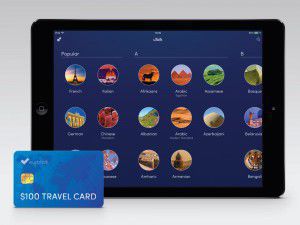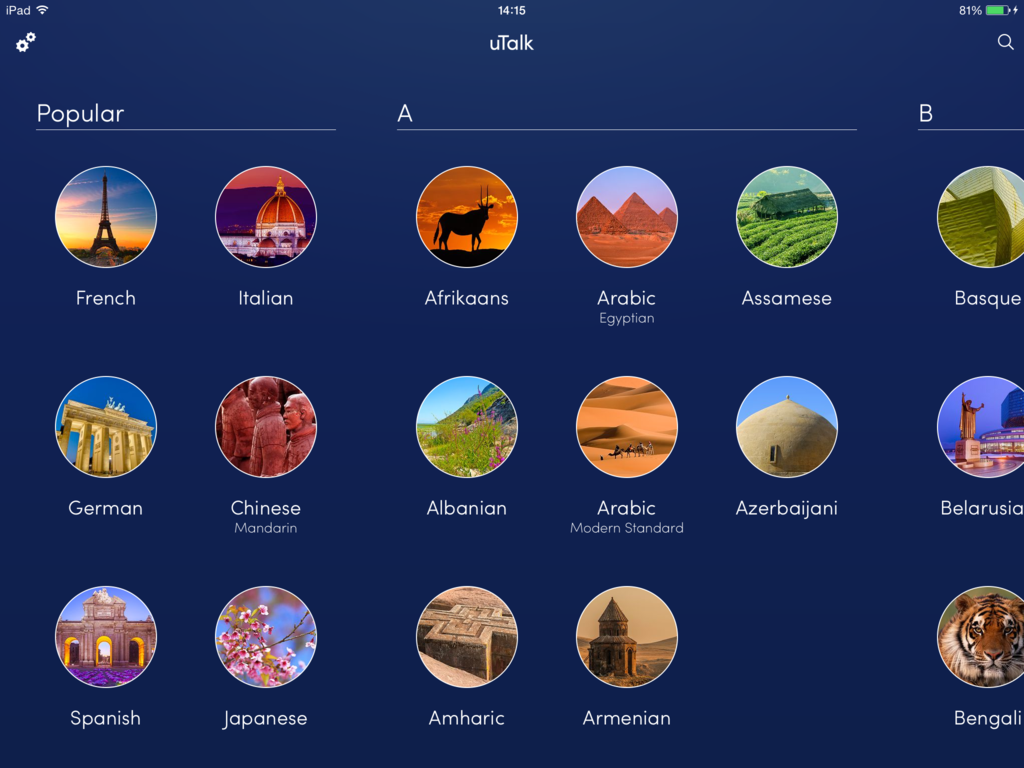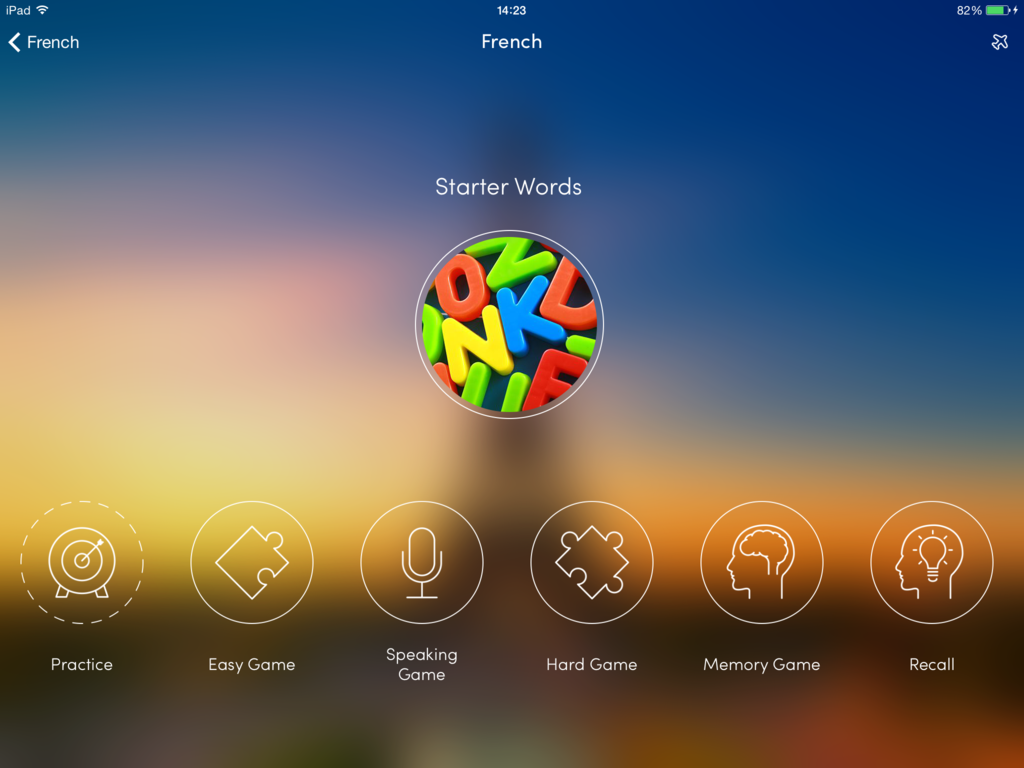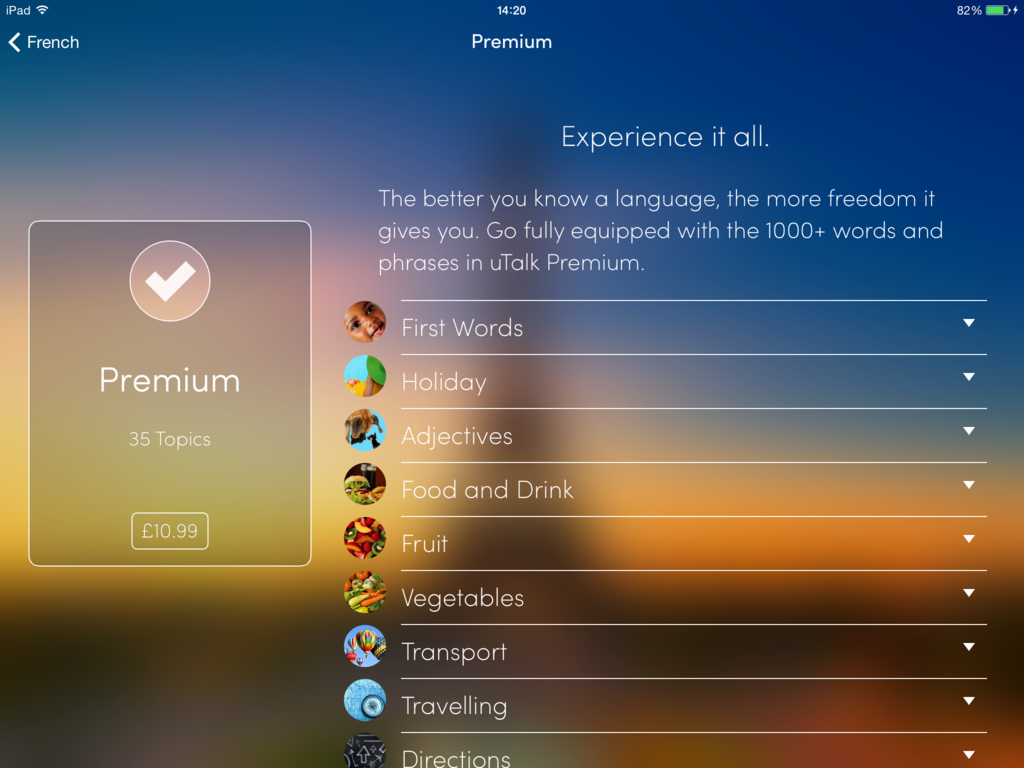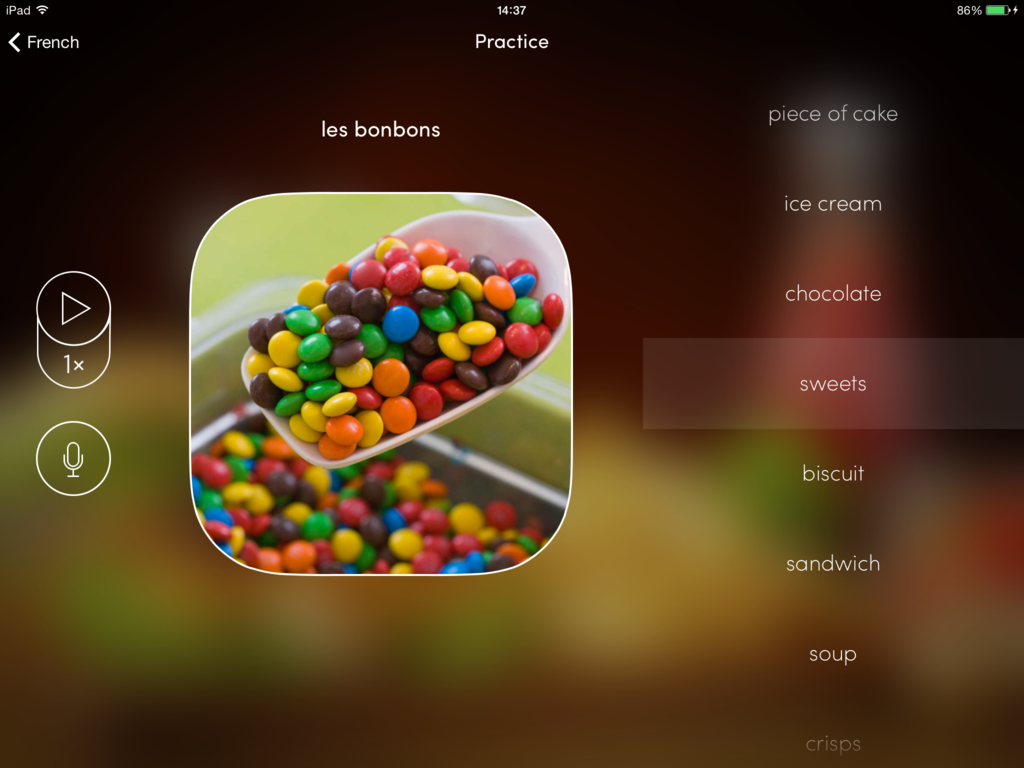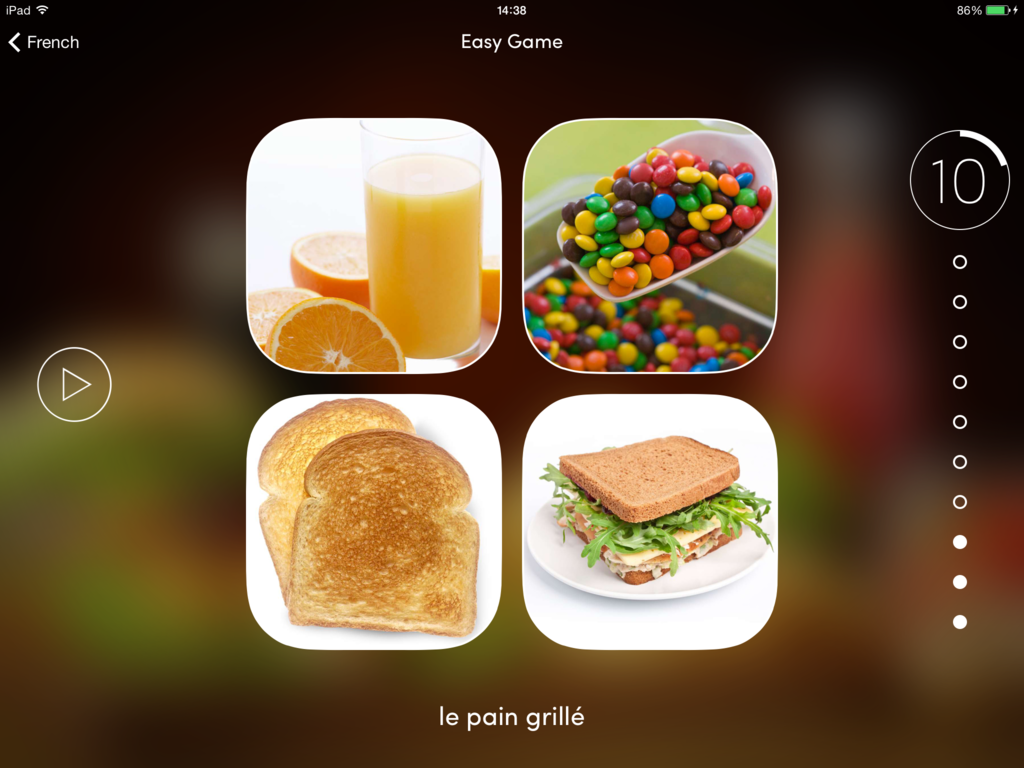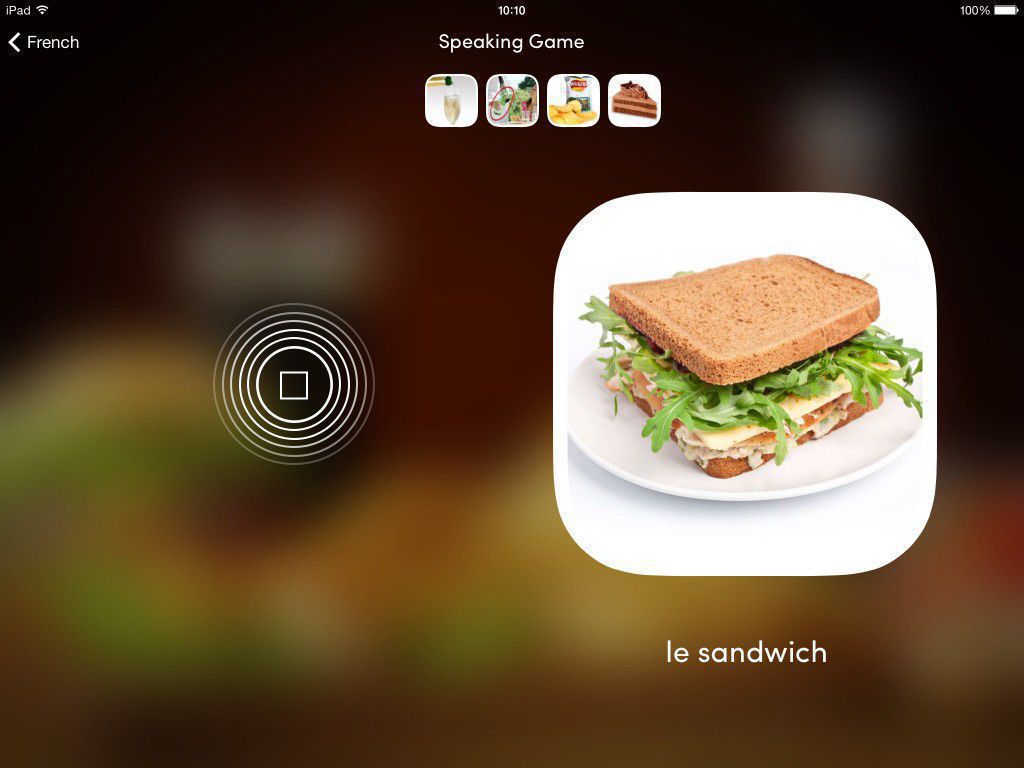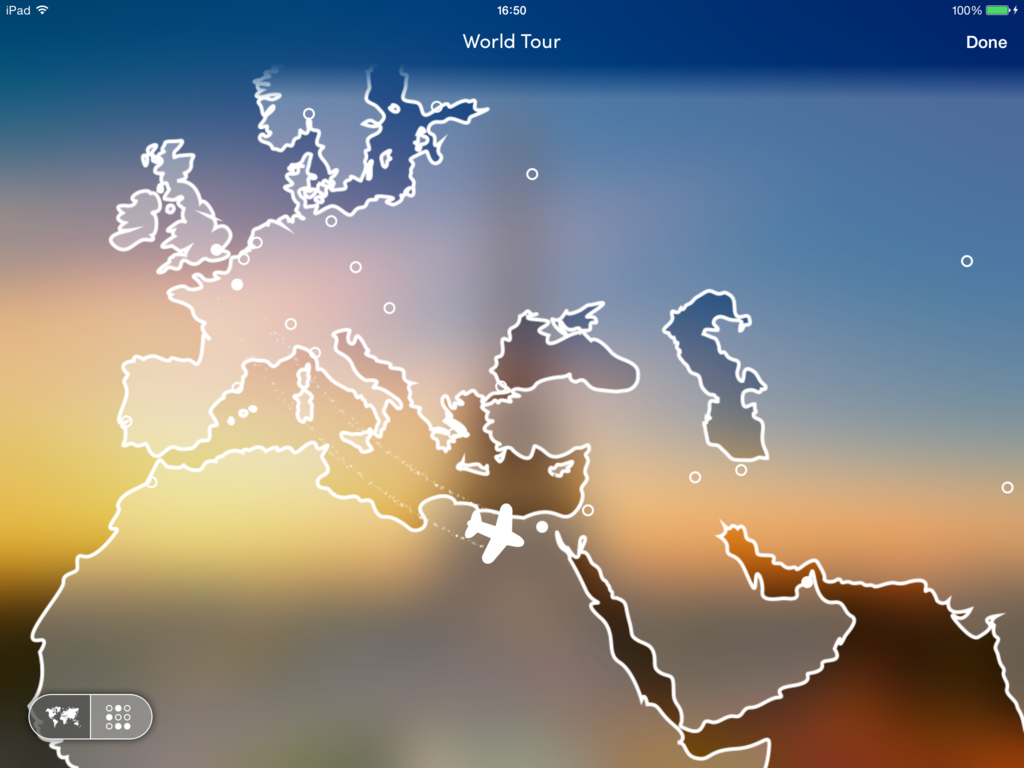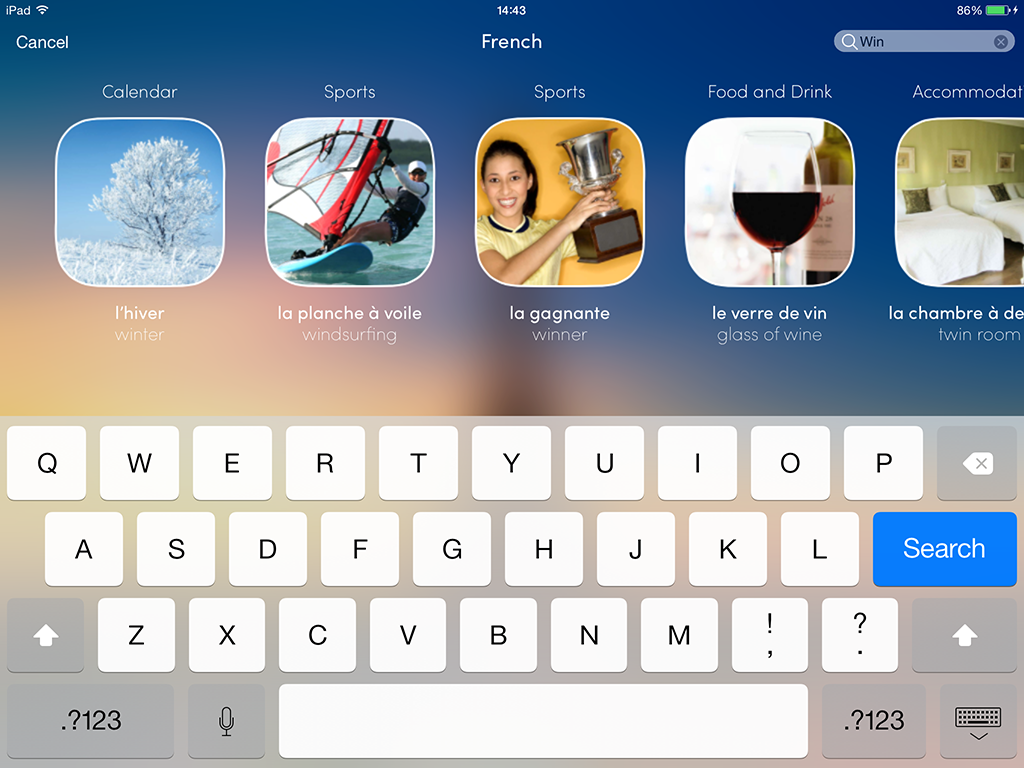Win a $100 travel card with uTalk!
When we asked you in our recent survey why you were learning a language, almost half of you said it was for travel. Which makes perfect sense, of course – why learn a language unless you plan to use it?
As you know, our uTalk app is designed for people who are travelling, who want to learn a few simple words before leaving home, waiting to board your flight, or even when you arrive. Because if you know even a little of the local language, it can make all the difference to your trip – that’s something else you told us!
Because we know travel can be an expensive business, we’re offering one lucky winner a prepaid travel card worth US$100 (or equivalent in other currencies), and a free uTalk Premium in a language of your choice – check uTalk.com to see which ones are available. uTalk Premium includes 1,200 words and phrases across 35 categories in your chosen language – that should keep you busy for a while…
If you’d like to see what uTalk’s all about, check out our guided tour.
Interested?
Entering is simple – log in below and check out the ways you can take part. The more you do, the greater your chances of winning – it’s that simple! And by sharing the giveaway with friends, you can earn extra entries.
We’ve extended the competition to Friday 7th November, when we’ll verify the entries and then contact the winner, so there’s still plenty of time to enter.
Good luck!
Language of the Week: Japanese
As it was the Japanese Grand Prix on Sunday, we have chosen Japanese as our Language of the Week.
First and foremost, our thoughts and good wishes go to Jules Bianchi for his full recovery following his crash on Sunday at Suzuka.
Though in many respects I’m a complete petrol head, I have never found Grand Prix very interesting to watch, lap after lap, rarely exciting in my book. However, when I started to research the history of the Japanese Grand Prix, I found some interesting facts:
Surprisingly it is the only circuit that crosses over itself in a figure of eight and therefore runs both clockwise and anti-clockwise.
The fastest lap ever recorded at the Suzuka circuit is 1:30.54 minutes and was set by Kimi Räikkönen in 2005. To put this into perspective, since the track is 3.387 miles long, if a Cheetah could run at its fastest for further than 1500ft, it would take it approximately 2.7mins!
When looking to learn Japanese it can appear very daunting because of the characters. However, it is one of those languages which is much easier to speak than write. Unlike the majority of languages, nouns do not have genders and there is also no differentiation between singular and plural. Personally, we love both these facts. There are also no pronunciation or tones.
Here are a few fun facts about Japan:
 Japan’s trains are among the most punctual in the world, their average delay is just 18 seconds. (What we’d give for that on a rainy Monday in London!)
Japan’s trains are among the most punctual in the world, their average delay is just 18 seconds. (What we’d give for that on a rainy Monday in London!)- Japanese farmers are growing square watermelons, because they are easier to stack and store. (Now that is thinking outside the box! Or is that inside?)
- In Japan there is a cat café where you can and go drink coffee whilst hanging out with cats for hours (Is that a new kind of speed dating opportunity?)
- This one has to be one of our favourites – sleeping on the job is acceptable as it’s a sign of exhaustion from working hard. (Sweet dreams!)
- In Japan there is no Ronald McDonald!! But panic not Big Mac fans, he’s called Donald McDonald due to the lack of a clear “R” sound in Japanese.
- There is an island in Japan called Ōkunoshima or Rabbit Island, since numerous feral rabbits run wild, though apparently they are quite tame!
The challenge for you all this week is another tongue twister:
Niwa no niwa ni wa, niwa no niwatori wa niwaka ni wani wo tabeta
Which means: In (Mr) Niwa’s garden, two chickens suddenly ate a crocodile.
So let’s see your best efforts! Send us your videos on Twitter to @EuroTalk using #itsJapaneasy or send them to us on Facebook – our favourite will win a free uTalk Premium in a language of your choice. Get twisting!
Are you learning Japanese? Or do you have any favourite facts about the language or the country? Let us know in the comments!
Amy
Language of the Week: German
As the annual festival of Oktoberfest gets underway in Munich this week, we’ve chosen German as our latest Language of the Week.
If you’re anything like us, when you hear ‘Oktoberfest’ you probably think of beer (oh – just us?) but there’s a lot more to the event than that. Oktoberfest is actually the world’s largest funfair, and it’s a 16-day festival running from late September to early October. There is a lot of beer consumed though – 6.7 million litres at the 2013 festival! – and it’s also a great place to try traditional German food.
German is often described as a less attractive language to learn than, say, Spanish or Italian, but we’re not sure we agree. For one thing, German’s far more creative. How many other languages have a word for ‘a face badly in need of a fist’? It’s backpfeifengesicht, in case you were interested.
Here are a few fun facts about German:
– It’s an official language of five countries: Germany, Austria, Switzerland, Luxembourg and Liechtenstein, and has at least 100 million native speakers around the world.
– You might know more German than you think – ever used the word ‘angst’, ‘kindergarten’ or ‘doppelgänger’? These are just a few examples – there are plenty more.
– German is known for its very long words, which are created by sticking together other words to explain a concept. In 2013, the language lost its longest word – rindfleischetikettierungsueberwachungsaufgabenuebertragungsgesetz – which is 63 letters long and means ‘law delegating beef label monitoring’, thanks to a change in EU regulations.
However most of these long compound words don’t appear in the dictionary. The longest word that does appear is kraftfahrzeughaftpflichtversicherung (‘automobile liability insurance’) at a mere 36 letters long, although we wish donaudampfschifffahrtsgesellschaftskapitaenswitwe (widow of a Danube steamboat company captain) was in there too.
We love this video by Language Hat, which is a really fun explanation of how these long words are put together. If you don’t find yourself craving rhubarb cake or beer by the end of it, you’re doing better than us!
– ‘Gift’ may be a nice thing in English, but in German it means ‘poison’, so be careful who you give it to…
– In German, when telling the time, ‘half three’ actually means ‘half an hour before three’ (i.e. ‘half past two’) – definitely worth knowing before making any plans.
– Germany is often known as Das Land der Dichter und Denker, which means ‘the land of poets and thinkers’. Not surprising really, since this is the country that gave us Johann Wolfgang von Goethe, Thomas Mann, Albert Einstein and the Brothers Grimm. It’s also the home of the first pregnancy test, invented by German researchers Selmar Aschheim and Bernhard Zondek. So now you know.
We know there are a lot of German fans out there, so please tell us why you love the language and the country – either in the comments or on Twitter to @EuroTalk with hashtag #loveGerman 🙂
And if we’ve convinced you to give German a go, remember you can start learning it completely free with uTalk or the free demo on our website.
Junior Language Challenge – the semi-finals!
Back in March, over 1,100 primary school children from around the UK joined our annual competition, the Junior Language Challenge, learning Italian online. Over the next three months, they scored points in the language games, and then in June the top scorers from each region of the country progressed to the second round.
Not wanting to make it too easy, for their next challenge we asked them to learn the notoriously tricky language of Japanese. Impossible, you might say – how can you expect children under 11 to learn such a difficult language?
As we discovered this week, it’s not impossible at all. Over the last ten days, we’ve been travelling around the country for the regional semi-finals, and have been seriously impressed with what we’ve seen. All the children had clearly worked really hard, and we had several very tense contests in the race to grab a place in the final. There were some familiar faces, and some first-time competitors, and everyone gave it their all. So on behalf of EuroTalk, thank you to all the teachers, parents and most importantly, the children for joining in so enthusiastically.
The competition also raised nearly £6,000 for a brilliant organisation called onebillion, who create apps to teach children in developing countries basic maths and reading, giving them valuable learning opportunities that we often take for granted here in the UK. onebillion were recently featured by BBC Click, and their report gives you a taster of the fantastic work they’re doing in Malawi.
But what about our finalists? They’re not finished yet. For their third and final language, they’ll be learning the African language of Somali, ready for the grand final in London next month, where they’ll compete for the title of Junior Language Challenge Champion 2014, and a family holiday to Africa.
We hope that everyone who’s taken part in the JLC this year, whether you’re continuing on to the final or not, really enjoyed it. Now you know that you can learn any language, even difficult ones, the sky’s the limit!
And to our finalists… see you next month 🙂
uTalk – Learn a Language: A Guided Tour
If you follow us on Facebook or Twitter (or maybe even if you don’t) you’ll know that we recently released a new update for our app, uTalk. And we’re really, really excited about it; not only does it now work on iPads, it’s got 130 languages included and it looks gorgeous. So I thought I’d give you a quick guided tour, so you can see what all the fuss is about.
Choose your language
Once you’ve download the app, the first thing you’ll probably notice is that it’s got loads of languages. From French, Spanish and German, through to Lao, Kachchi and Cebuano, we’ve got them all (and if we don’t have the one you want, we probably soon will – let us know what you’re waiting for in the comments).
The best bit is if you’re just curious and want to hear what a language sounds like, it won’t cost you a penny, because uTalk gives you a Starter Words section in all 130 languages completely free.
Starter Words
These Starter Words include the essentials that you’ll need when you first arrive in a new country – ‘hello’, ‘please’, ‘thank you’ and ‘help’ (hopefully you won’t need that one, but it’s always a useful word to know!) among others.
There’s also a selection of games to help you remember these key words, so you’re totally prepared before you step off the plane.
Upgrades
If you’re anything like me, though, once you’ve learnt a few words you won’t want to stop. So uTalk gives you the chance to learn more, with the Essentials and Premium upgrades.
The Premium will unlock 1,200 words and phrases across 35 categories for the language you choose – and that’s when it gets really fun. The app’s got everything from food and drink and travelling, to adjectives and numbers up to ten million. You can order a beer, ask someone to dance and check you’re on the right train (again – useful).
How it works
Ok, let’s get down to business. You’re going to France for a few days, and you want to learn some French before you go. How should you use uTalk?
First, choose your topic. Then, start with the Practice; this is where you learn the vocabulary. You can listen as many times as you like, slow it down, even have a go yourself with the recording button. Each word or phrase has a corresponding picture, which will help you remember it later, and they’ve all been translated and recorded by native speakers.
Then it’s time for the games. Start with the easy game, because it’s – well, the easiest. You’ll be shown some randomly selected pictures and hear one of the words you’ve just learnt. Choose the correct picture to carry on and start scoring points.
Then work your way up through the games, which get gradually more difficult. Be warned, they’re very addictive, so you may miss your stop because you’re concentrating so hard. And you might get some funny looks when you play the recording game on the train. I speak from experience on both of these things…
World Tour
Hidden throughout the app are 48 achievements. No, I won’t tell you what they are – but every now and again you’ll see a message pop up that says ‘World Tour Destination Unlocked’, and then at the end of that game, you can go and see where you’re heading off to.
Tap on the destination and watch your plane take off. To see how many destinations you’ve collected (and how many you still have to find) touch the grid icon at the bottom of the screen.
Instant Search
Of course this is all well and good, if you have time to sit and learn the language before you leave home. But what if you don’t?
No worries – just take uTalk with you, and any time you need a word, type it into the search box. (I used this feature myself when I went to Italy a few months ago and it saved me more than once.)
So what do you think? If you’re ready to give it a try, you can download uTalk from the App Store for free right now (no camping out required!). And we love customer feedback, so please do tell us what you think of the new design and features.
Most importantly, we really hope you enjoy using the new uTalk as much as we enjoy telling people about it 🙂
Liz
